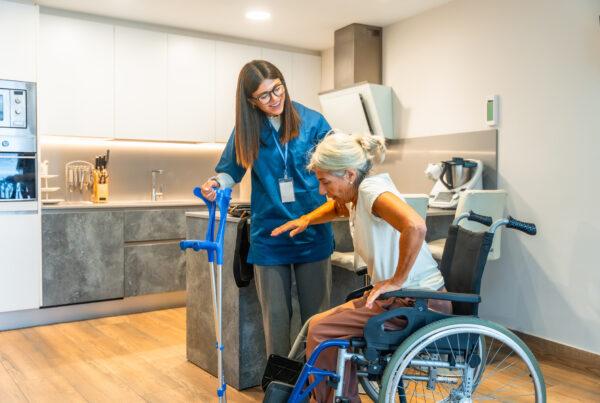Are you an animal lover seeking a rewarding and lucrative career? If so, consider becoming a veterinary office assistant. This role puts you at the forefront of daily operations in a veterinary office as you complete various interesting administrative and medical assisting tasks.
In our Medical Office Assistant training program with a Veterinary Speciality, students develop an understanding of fundamental medical processes, medical administration, and office computer applications to succeed in a veterinary clinic. Keep reading to find out whether veterinary office assistant training could be the beginning of your dream career.
Train online or on-campus for a job that pays more and means more.
Considering a career change?
1. Emotional Control Will Make You a Great Veterinary Office Assistant
Working at the front desk at a veterinary clinic, you will regularly see pets in rough physical condition or in distress which may be challenging for someone who cares about the well-being of animals. Suppose you have great emotional control and do well in crises. In that case, you can take the lead in emotionally charged situations and coordinate the appropriate solutions for each pet effectively and efficiently.
While some patients may pull on your heartstrings and present an extra challenge, keeping your composure demonstrates dedication to the animals who are counting on you to be focused and present after veterinary office assistant training. Through our 51-week Medical Office Assistant with Veterinary Specialty diploma program, we equip graduates with the knowledge, expertise, and practical experience needed for a job in any medical field.
2. You Are Perceptive and Empathetic
Animals cannot communicate with us the way their owners can. Most animals use subtle body language cues to show that they are in pain. Your ability to perceive these cues will benefit your team as sometimes you can intuit what sort of mental attention a pet needs just by looking at them. Of course, the most reliable information about an animal will come from its owner, who is familiar with their typical behaviours, eating and bathroom habits, and medical history. Your ability to interact appropriately with pet owners will determine the quality of the information they provide the clinic.

Exercise empathy and perceptiveness after veterinary office assistant training
Owners bringing their beloved pets to the vet may be in distress. After medical office assistant training, you are their first point of contact. If you project empathy, you will be a great addition to any veterinary team as others feel understood and cared for in your presence, making them more likely to open up and provide the information your team needs to administer the proper treatment for their pet. In addition, being empathetic towards pets and their owners will likely improve their satisfaction with their experience and return.
3. Your Are Organized
When you become a veterinary office assistant, you will manage plenty of patient information, internal communications, clinic accounting, and other office management duties. If you’re naturally organized with great time management skills and the ability to multitask, chances are that you will be fully capable of managing the multi-faceted role of a veterinary office assistant.
Do you have what it takes to thrive in this role? Your next step is to join our quality career training. Our curriculum instills medical administration knowledge of medical terminology, anatomy and physiology, pharmacology, hospital and medical office admin procedures, and clinical procedures. In addition, you will learn a range of industry-standard software skills that will prepare you to work in various veterinary clinics and hospitals.






